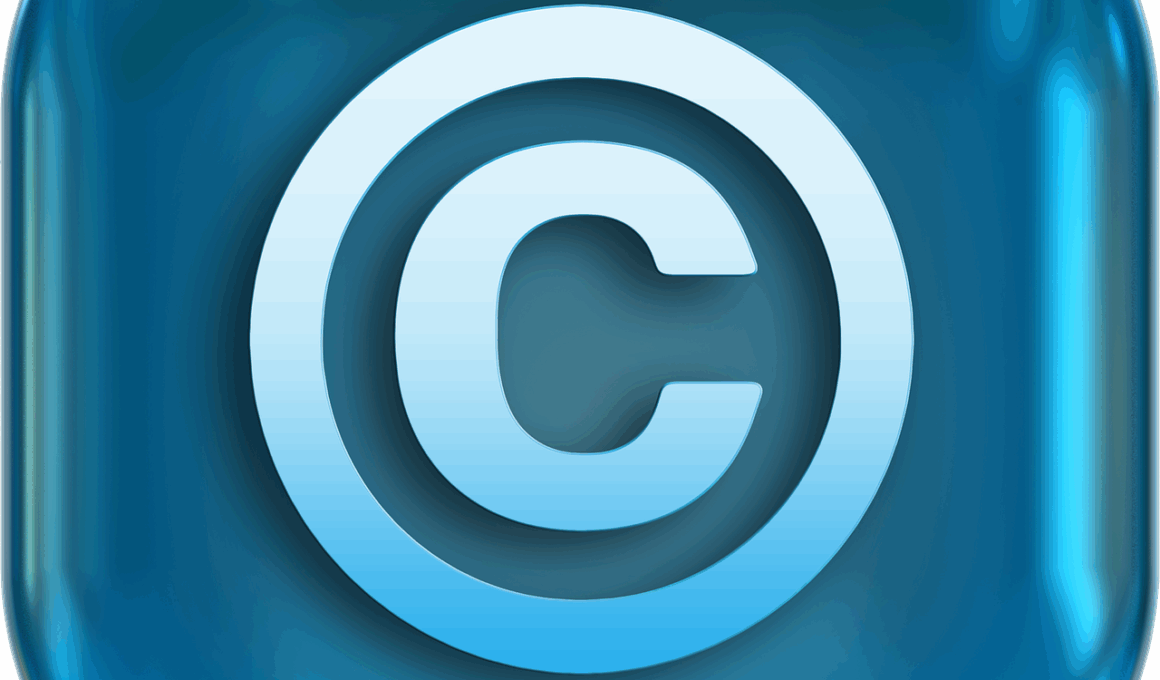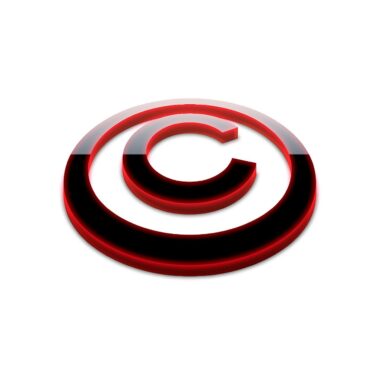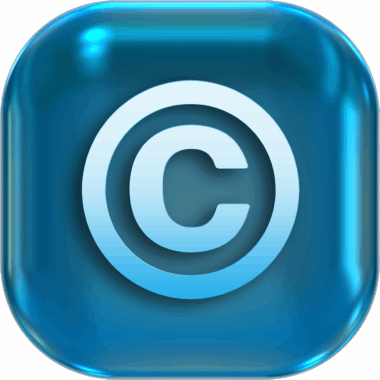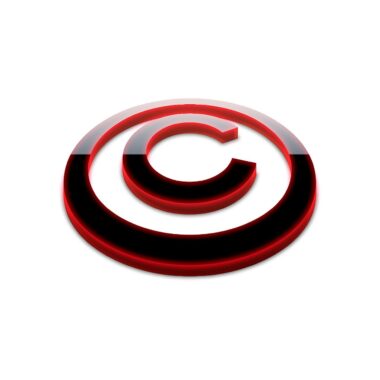Responding to Copyright Claims on Your Social Media Accounts
In the digital age, social media platforms have become key venues for sharing creative work, but they also present challenges regarding intellectual property rights. When you use and share content online, issues of copyright can arise, especially when others claim ownership of your posts. It’s vital to understand the basics of copyright law and how it applies to your social media accounts. Understanding these concepts ensures you can effectively manage your content while protecting your rights. You must know that social media networks generally have strict policies regarding copyright, which are designed to protect original content creators from infringement. As a user, you should familiarize yourself with these rules and promote ethical sharing practices. This foundation can help you navigate disputes amicably, should they arise. Moreover, having a clear social media policy for your brand or personal account can safeguard against misunderstandings related to copyrighted material. Make sure to educate yourself about fair use, licensing, and the use of copyrighted images or text to avoid potential claims against your account. Ignorance of these laws can lead to unwanted penalties or even deletion of your social media account.
Understanding Copyright Claims is the first step in responding to them effectively. Copyright claims typically occur when a content owner believes their intellectual property has been used without permission. Social media platforms like Facebook, Instagram, and Twitter have established processes for reporting copyright infringement. Once a claim is filed, the platform usually investigates the allegation based on their terms of service. Many users may not realize that they can contest these claims if they believe their content is within fair use or they have obtained the necessary rights to use the material in question. You should assess whether the content in question falls into categories such as commentary, criticism, or education, often protected under fair use, before taking any action. If you receive a copyright claim, it is advisable to gather any documentation that supports your rights to use the content. Responding promptly and thoroughly is crucial to ensuring a fair resolution. Take the time to formulate a strategic response, as delays may hinder your chances of resolving the claim favorably. Knowledge and prompt action are essential when dealing with copyright issues on social media.
Upon receiving a copyright claim, immediate assessment of the claim’s validity is necessary. Start by reviewing the claim and determining its legitimacy. Understanding the specific content being claimed is crucial to formulating your response. If the claim involves a post you shared, look into whether you have permission to use the original material or if your usage qualifies as fair use. If you think the claim is erroneous, prepare to counter it appropriately. A clear response can help clarify your position to the social media platform and the claimant. Having detailed notes, agreements, or licenses that validate your right to use specific works will strengthen your defense. Engaging in respectful communication can foster a positive resolution. If applicable, be transparent with claimant details regarding cover images or quotes—this can often offer additional context. Moreover, consider reaching out directly to the individual or entity that filed the claim to discuss the matter amicably. Misunderstandings happen, and many copyright conflicts can be resolved through open dialogue rather than escalations.
Responding to a Copyright Notice
If you determine a claim is valid, the next step is to respond in a manner that complies with social media policies. Options usually include removing the infringing content, which may help you avoid penalties. If you choose to keep the content, providing proof of ownership through permission or licensing could work in your favor, but this is uncommon. Review the terms laid out in the notice you received, as they often contain specific instructions regarding your options. Some platforms allow for a ‘counter-notice’ process, enabling users to assert their rights and indicate their content is legally sharable. Formulating a counter-notice requires careful wording; it should clearly state your grounds for contesting the claim. Templates from platform guidelines can assist in drafting effective responses, ensuring compliance with necessary protocols. Be aware, however, that submitting a false counter-notice can have significant legal repercussions. Understanding the nuances of your situation is essential before taking action to respond accurately. Overall, these processes require diligence, as they reflect on your content sharing ethics and compliance with intellectual property laws.
Rights and Responsibilities play a pivotal role in how we address copyright claims. As a content creator or user on social media, it is imperative to understand both your rights and responsibilities regarding intellectual property. You have the right to share original works, but you must also respect the rights of others. This includes familiarizing yourself with proper attributions, obtaining necessary licenses, or using public domain materials when creating content. Furthermore, your actions have consequences; infringing upon someone else’s intellectual property can result in your content being taken down, account suspension, or even legal action. These outcomes underline the importance of informed sharing practices. You need to establish clear boundaries to sustain a positive online presence. Adopting a proactive approach by creating a content strategy that includes copyright compliance will serve you well. Take time to learn about licensing options and seek permissions when necessary. By acting ethically, you contribute positively to the vast online creative community while safeguarding your own rights and interests.
Legal Considerations
It is crucial to recognize that copyright law can differ significantly by jurisdiction. While some concepts are universally applicable, the interpretation and enforcement of copyright claims can vary based on local laws. When responding to copyright claims, it’s essential to understand the laws governing content in your specific area. For instance, a piece of content might be considered fair use in the United States but may have different protections or restrictions elsewhere. This understanding emphasizes the importance of seeking legal advice if you frequently engage in content creation. Consulting a legal professional specializing in intellectual property will help you navigate complexities. Furthermore, when developing business policies around copyright, ensure these incorporate the nuances of your operational jurisdictions. Social media itself operates globally, but your legalities are influenced by your geographic location, making compliance intricate. Know that every interaction online may have legal ramifications; therefore, awareness and preparedness are your best tools against claims that could significantly impact your digital presence.
Finally, developing a proactive copyright strategy can safeguard you from future claims. As a content creator, consistently assess the materials you utilize and ensure you have the right to share them. Creating original content whenever possible is advantageous and can alleviate complications associated with copyright disputes. Additionally, consider using copyright-free resources, such as royalty-free image libraries or open-source music, when posting on social platforms. Clearly document the permission you obtain if you need to use someone else’s work, as this will protect you against infringement allegations. Also, making a habit of crediting the original creators of the work you share fosters a respectful community and shows awareness of intellectual property. Regularly reviewing your existing content against copyright guidelines is essential as well; this ensures your account remains in good standing. Lastly, engage with fellow creators about copyright practices to create a more cooperative and constructive artistic environment. By taking proactive measures now, you can prevent future legal complications and allow your creativity to flourish.
Conclusion
In summary, addressing copyright claims on your social media accounts requires a proper understanding of intellectual property rights, careful assessment of claims, and proactive strategies. It’s vital to comprehend the intricacies of copyright law, recognizing the rights and responsibilities that accompany sharing creative works. When confronted with a copyright claim, respond promptly and thoughtfully, assessing the validity of the claim and preparing your defense accordingly. Relying on legal expertise can strengthen your position in disputes and provide necessary insights. Additionally, develop a proactive copyright strategy to mitigate and avoid potential claims in the future. Sharing original content, practicing ethical attribution, and utilizing copyright-free resources will lay a strong foundation for a sustainable online presence. Taking the time to engage with fellow creators on copyright issues fosters a respectful environment that benefits the social media community as a whole. With careful planning and awareness, you can navigate the complexities of copyright while maintaining an engaging and impactful presence in the digital landscape. Always remember that respect for others’ intellectual property bolsters the integrity of the creative realm.





